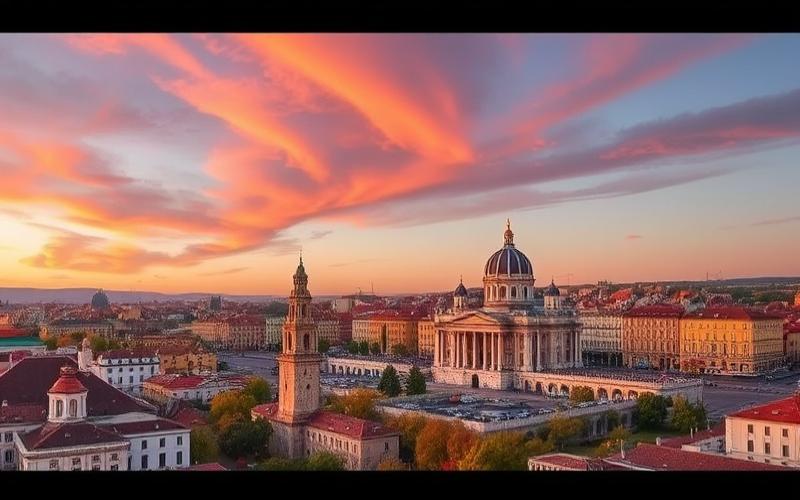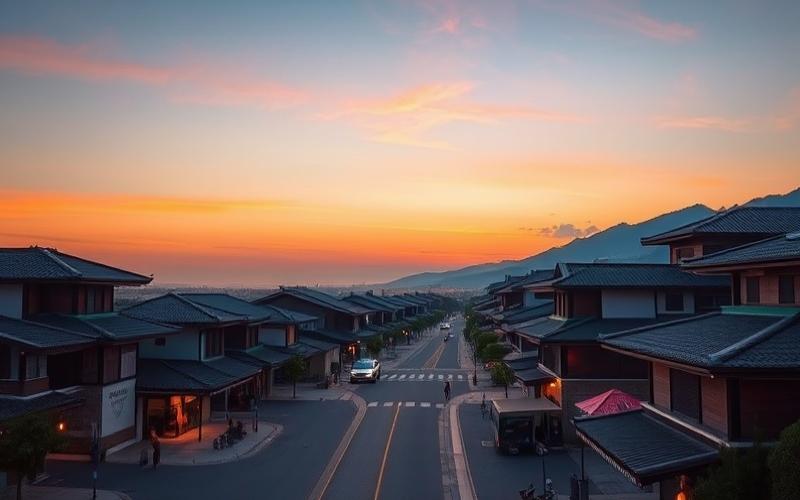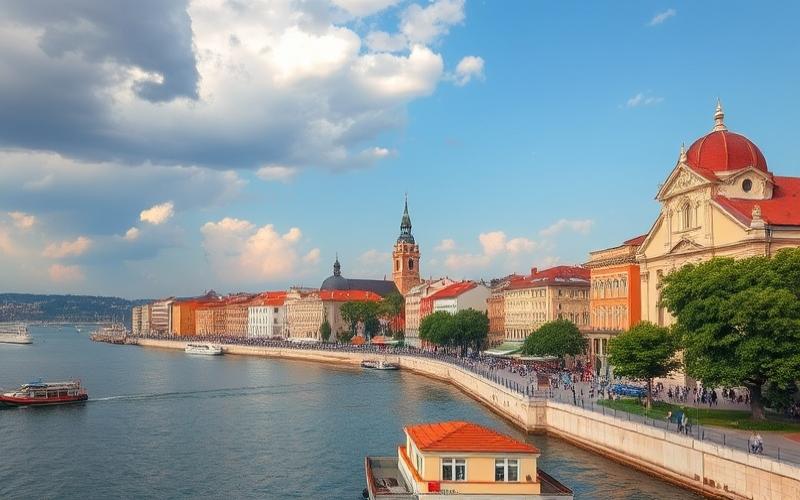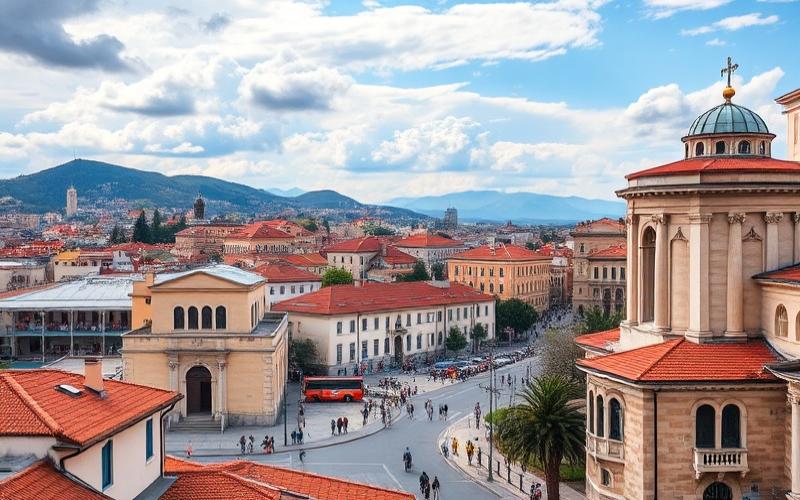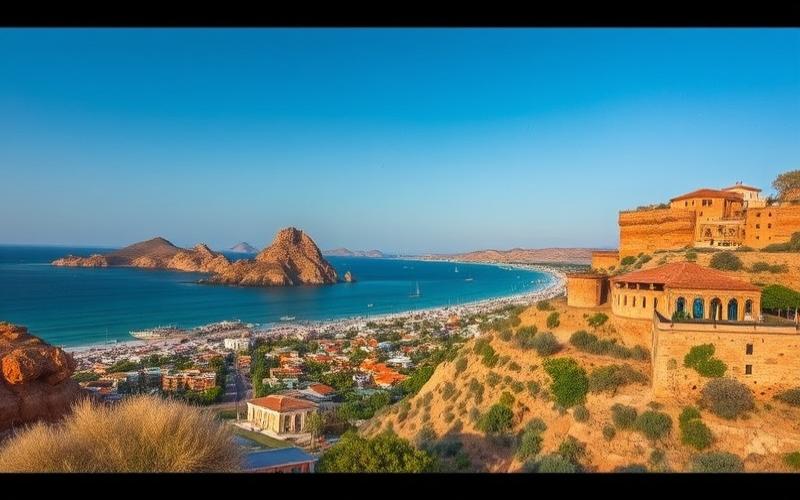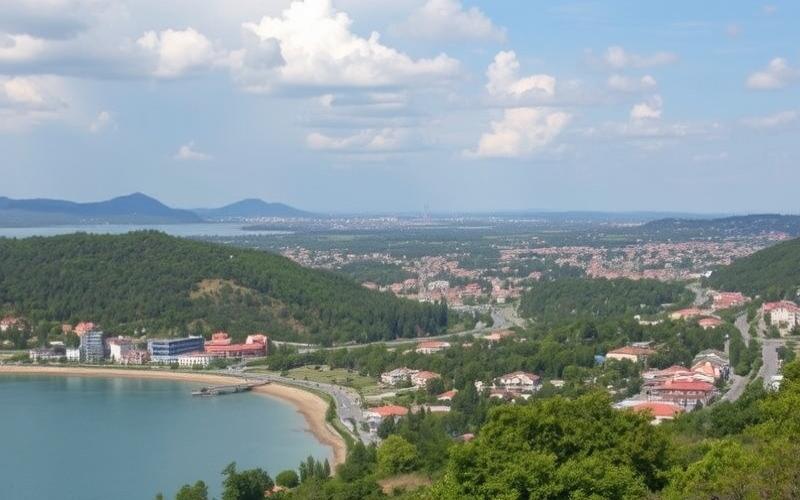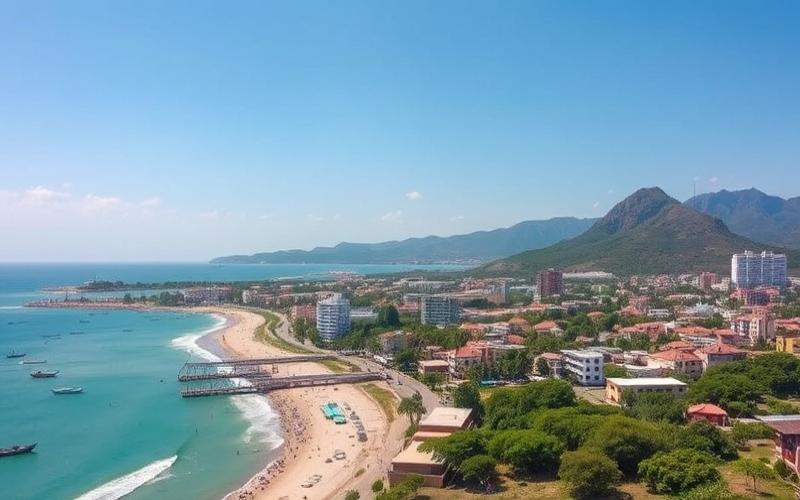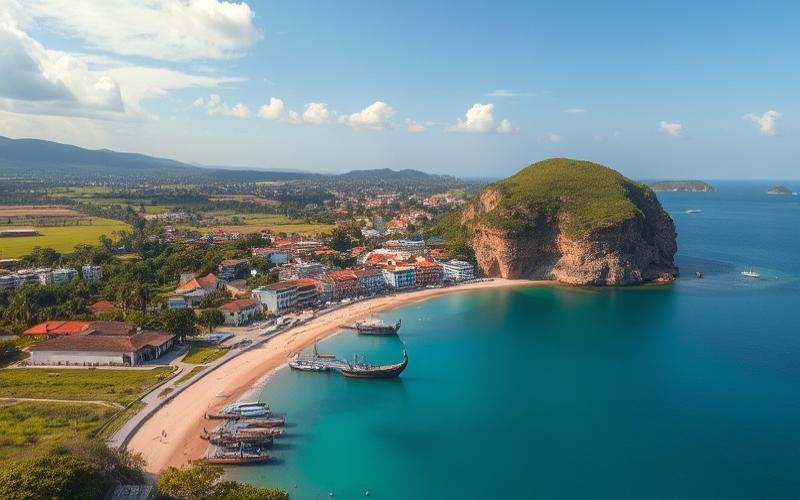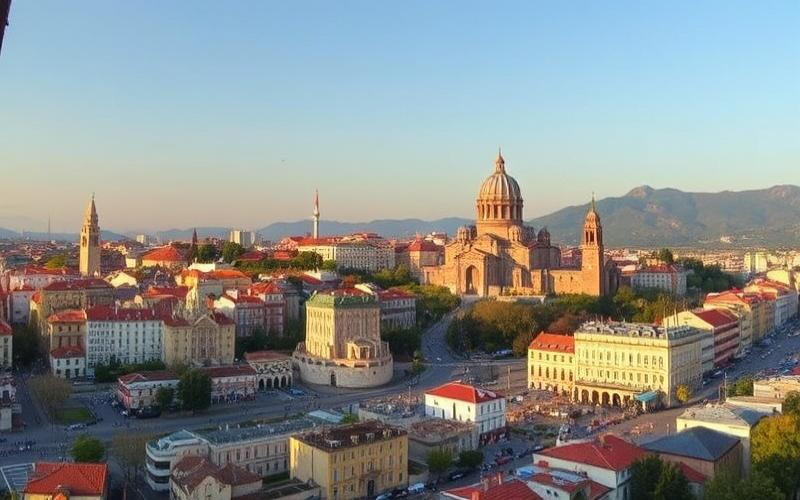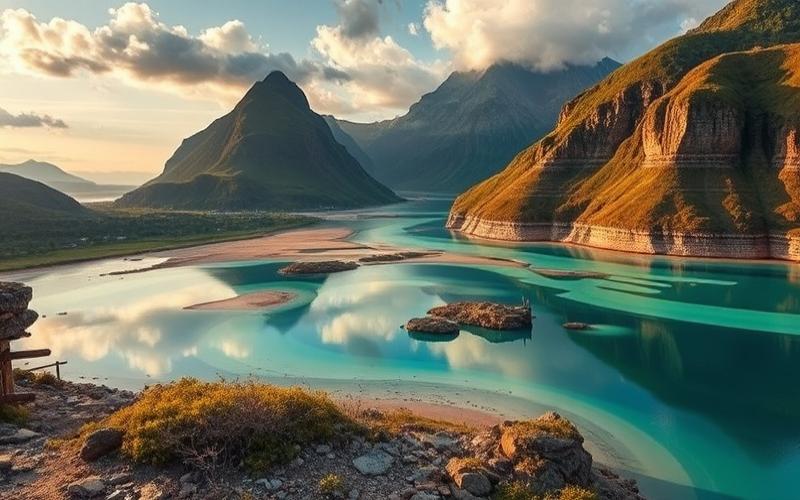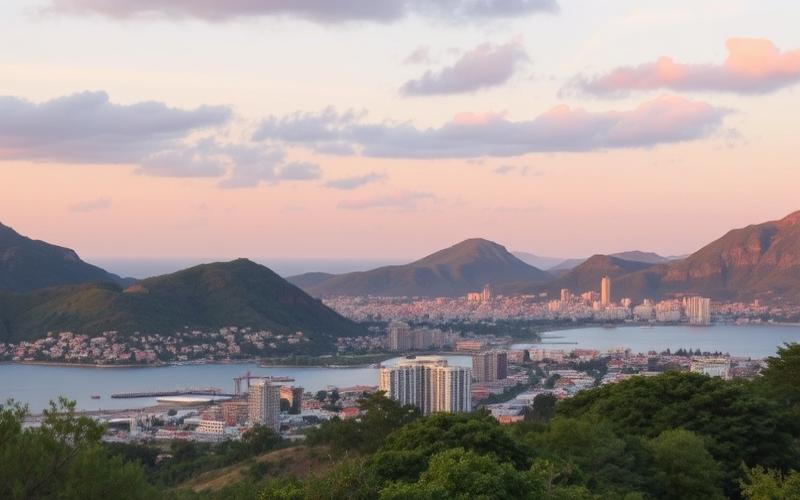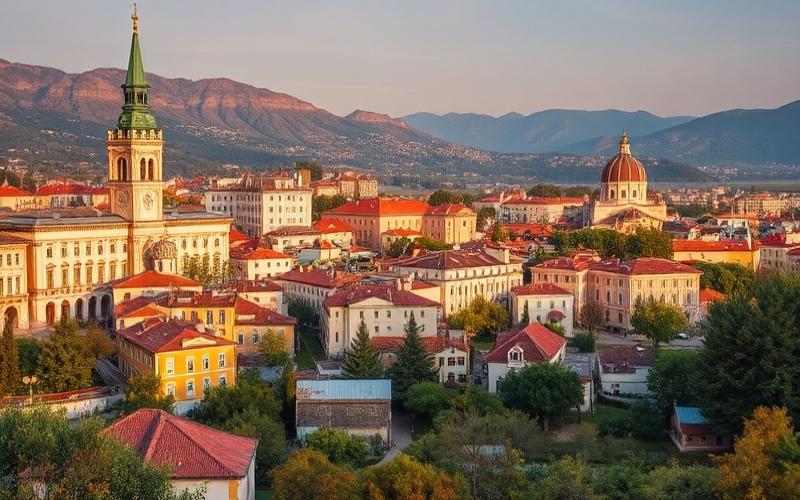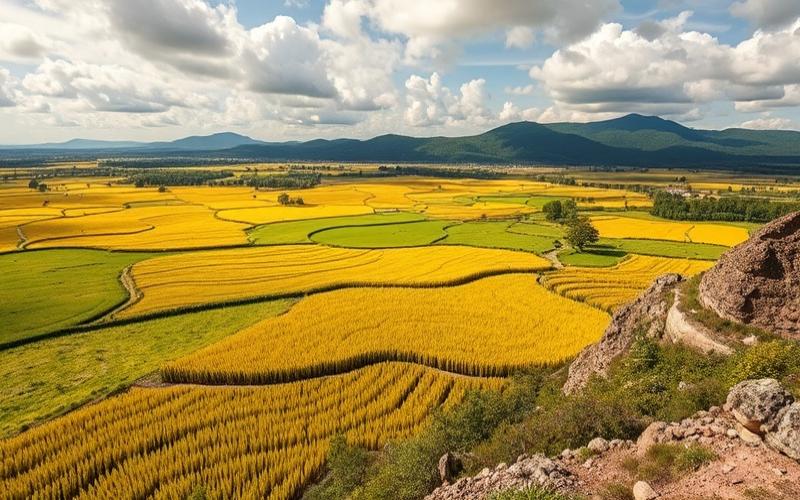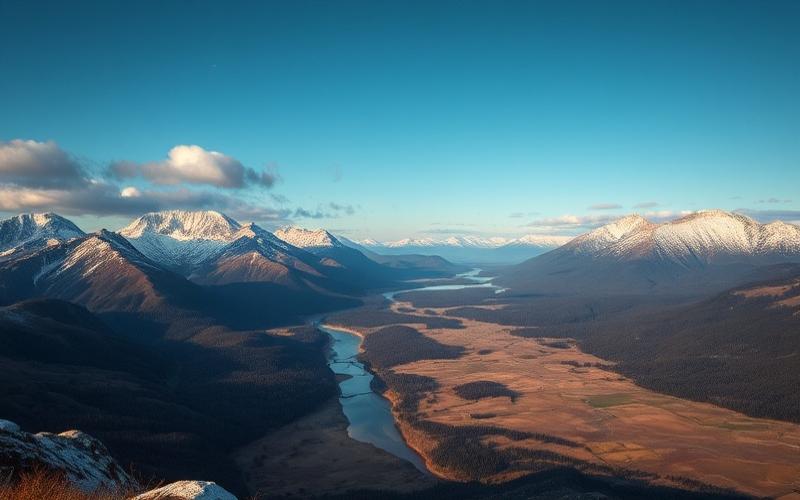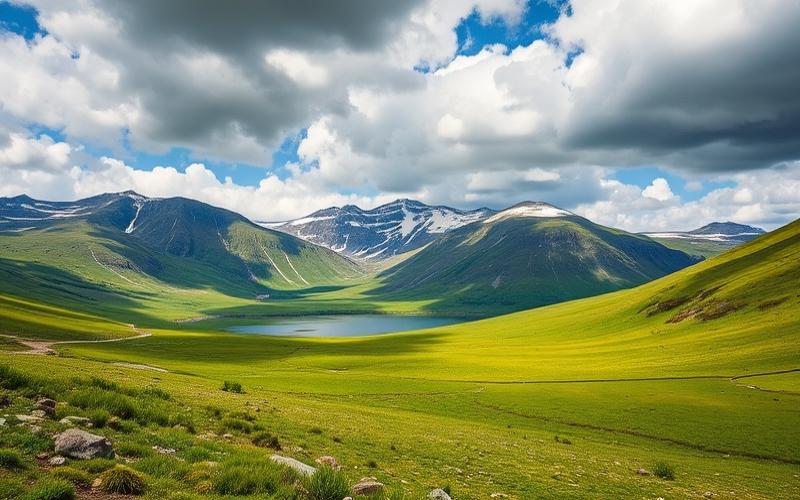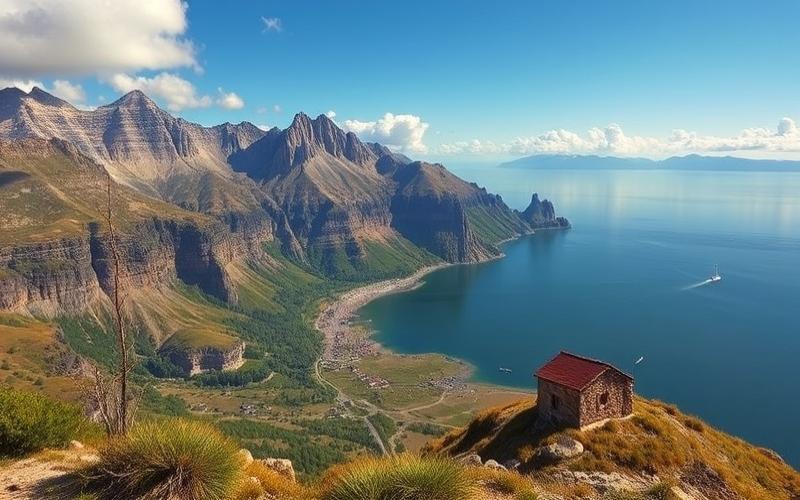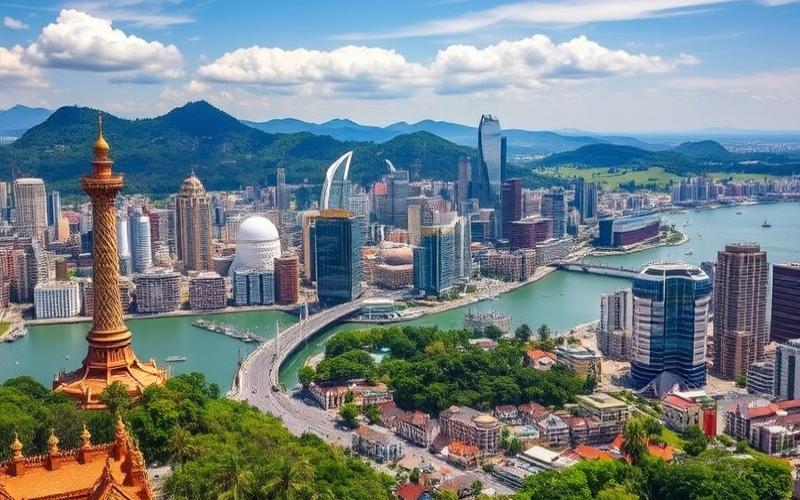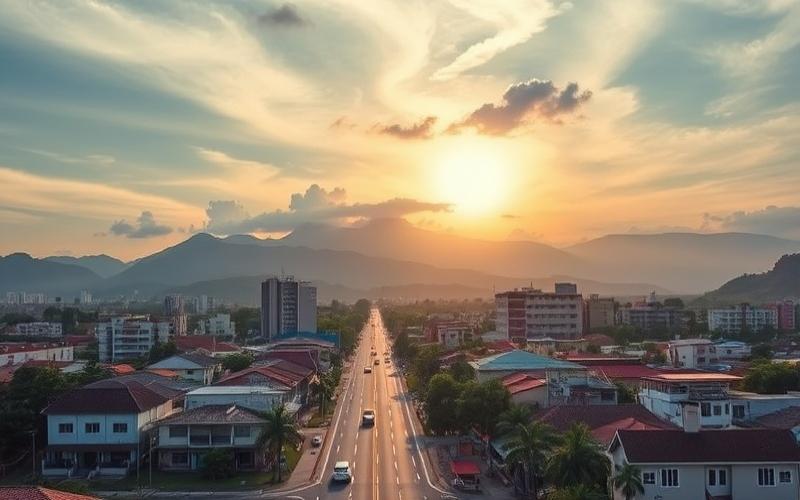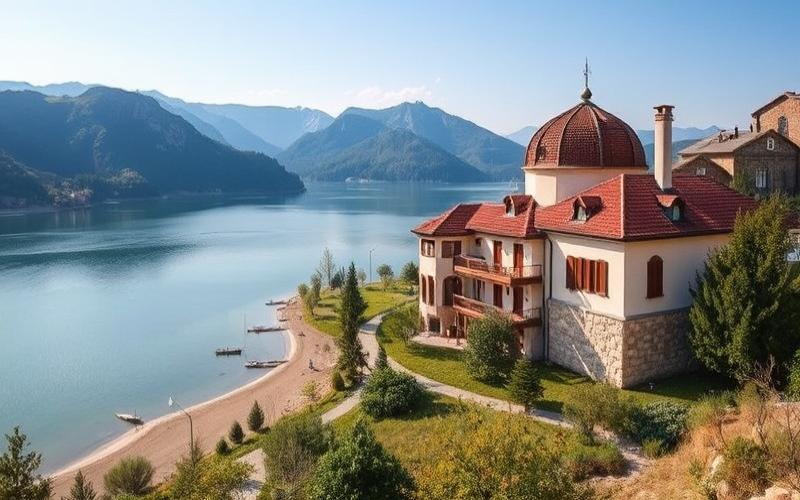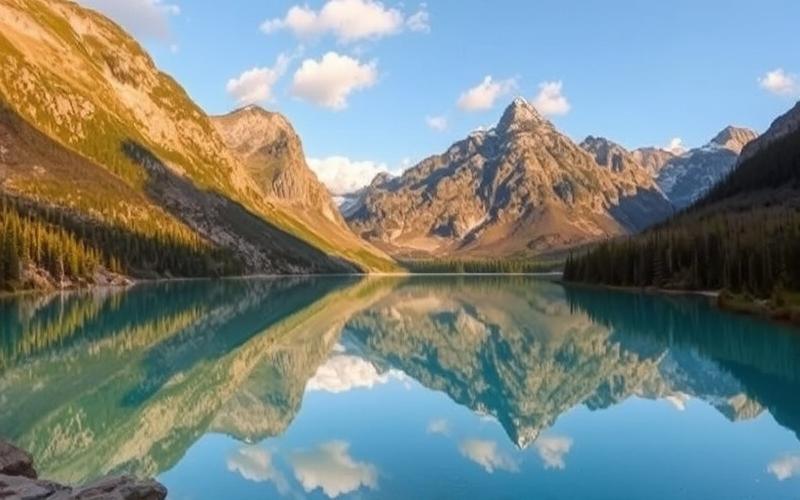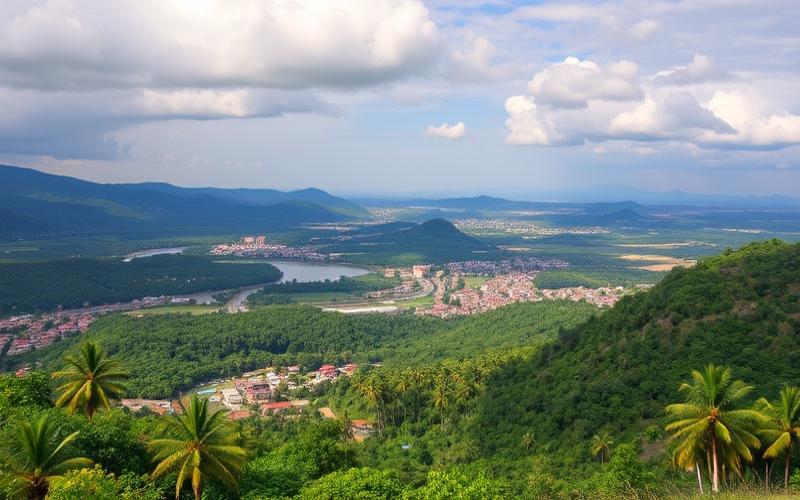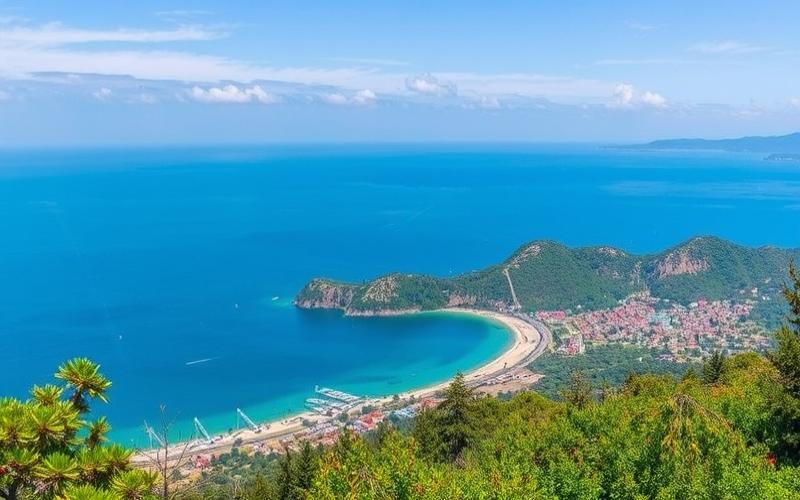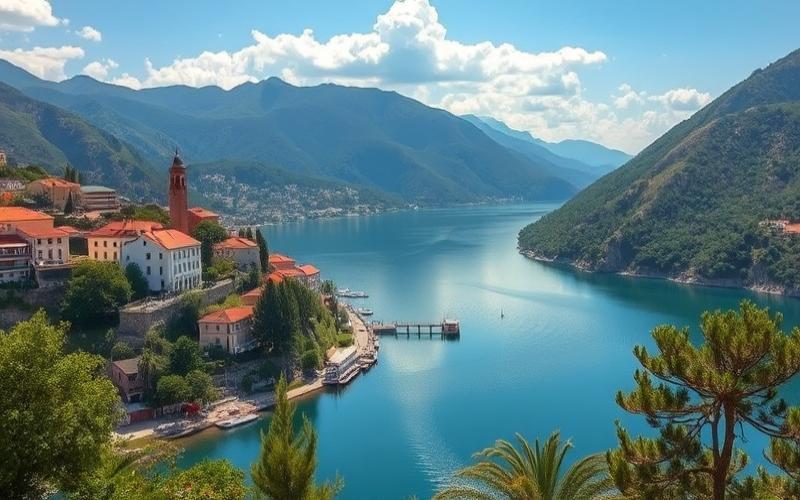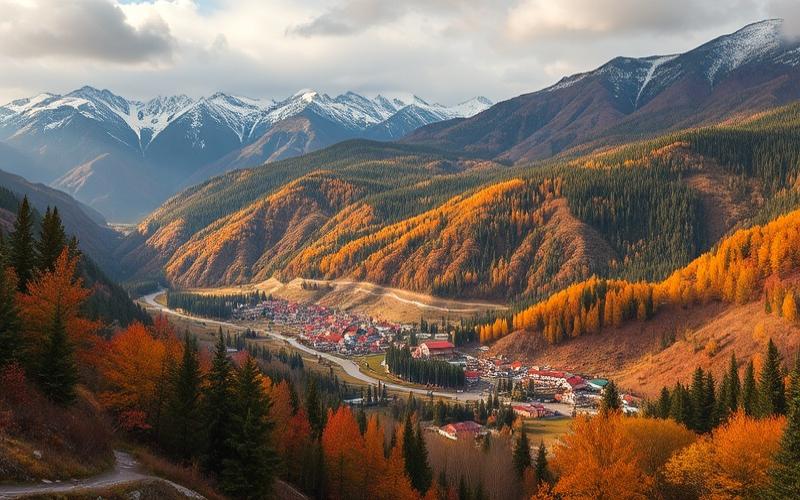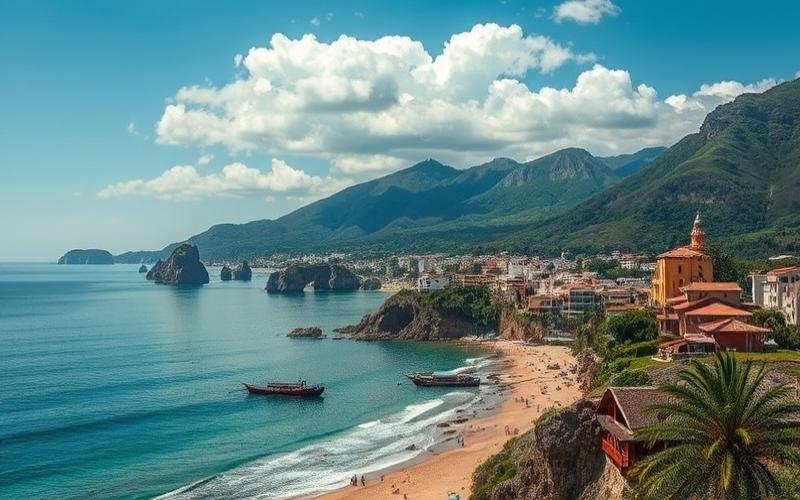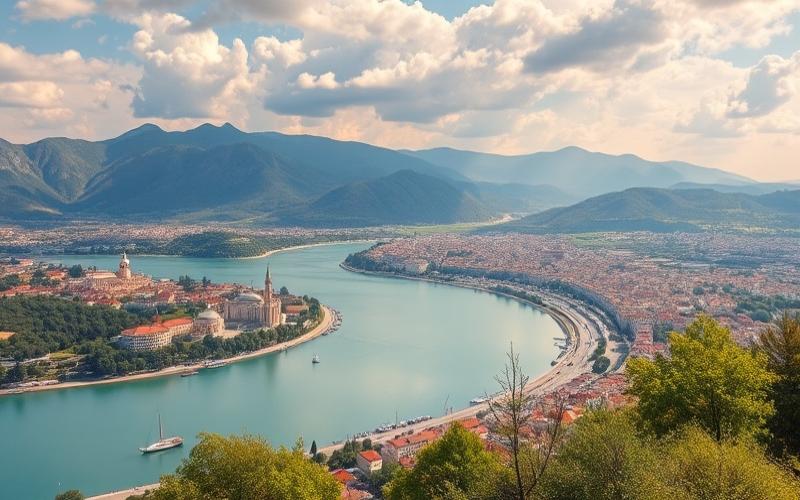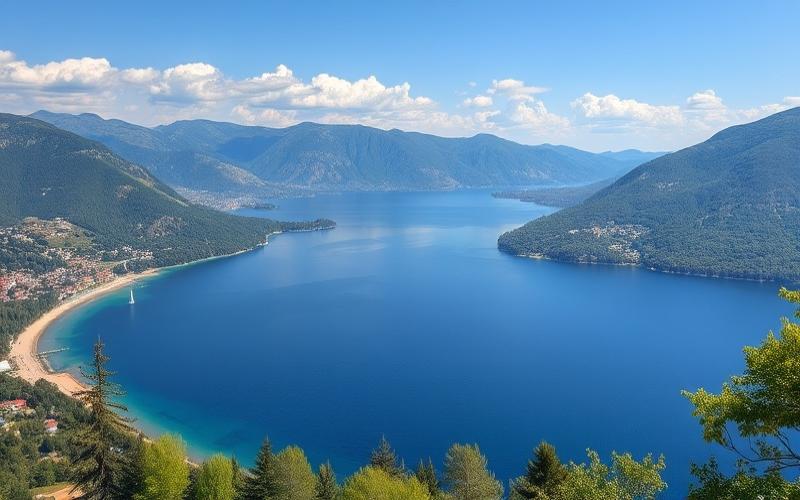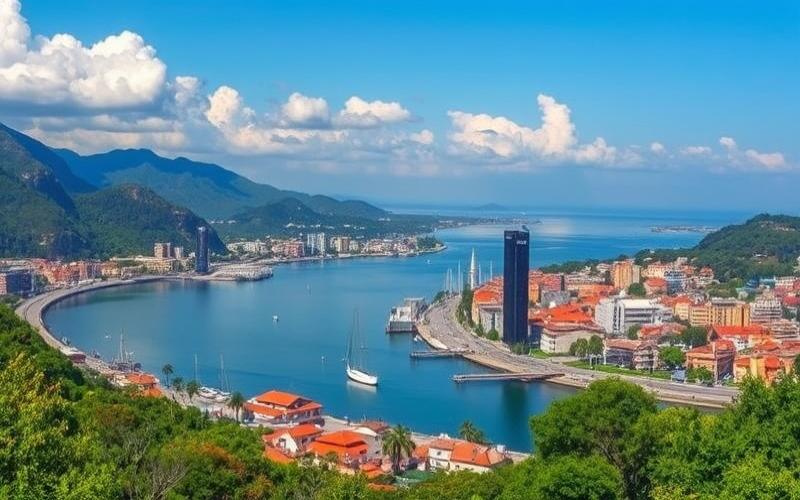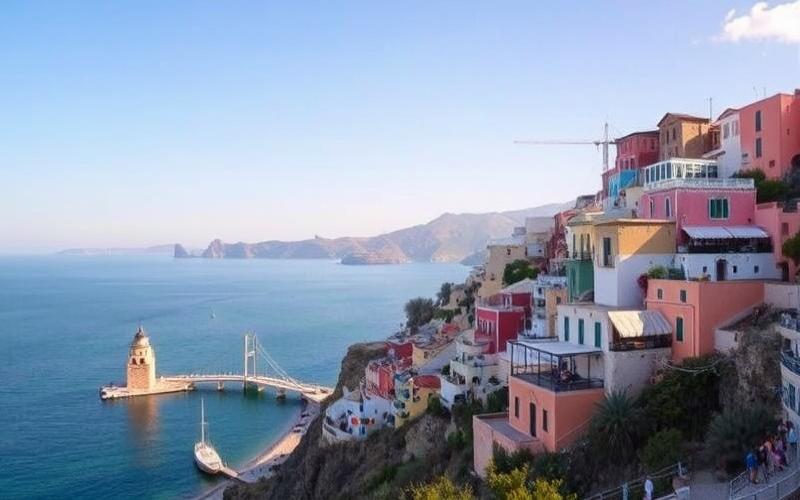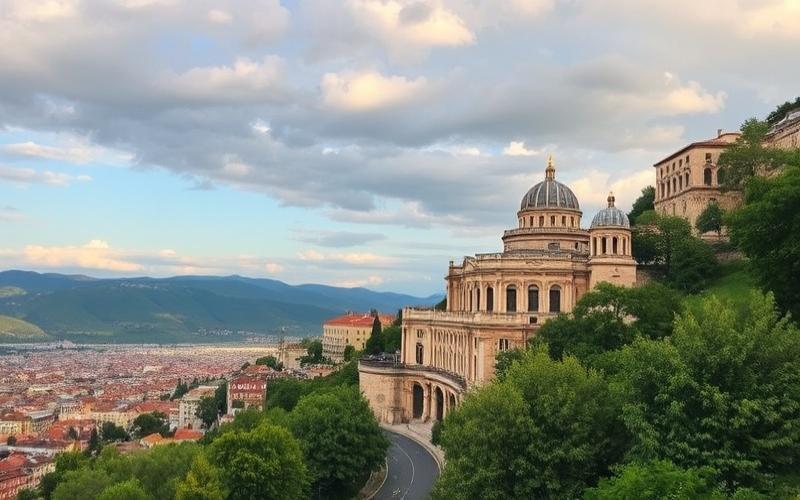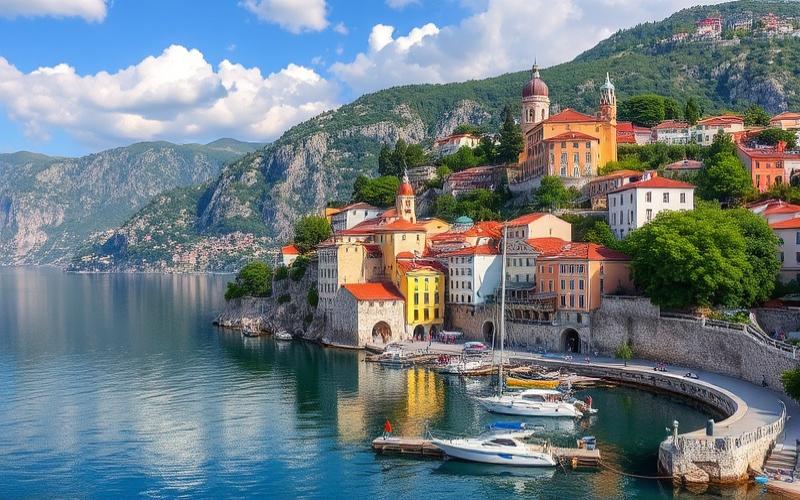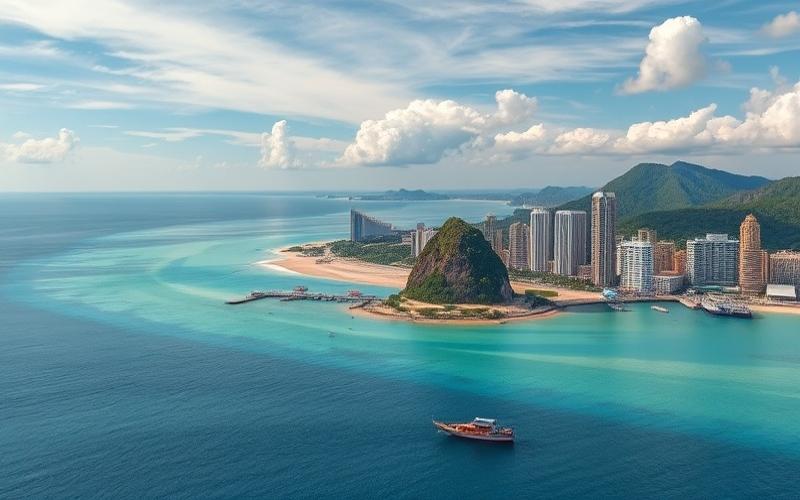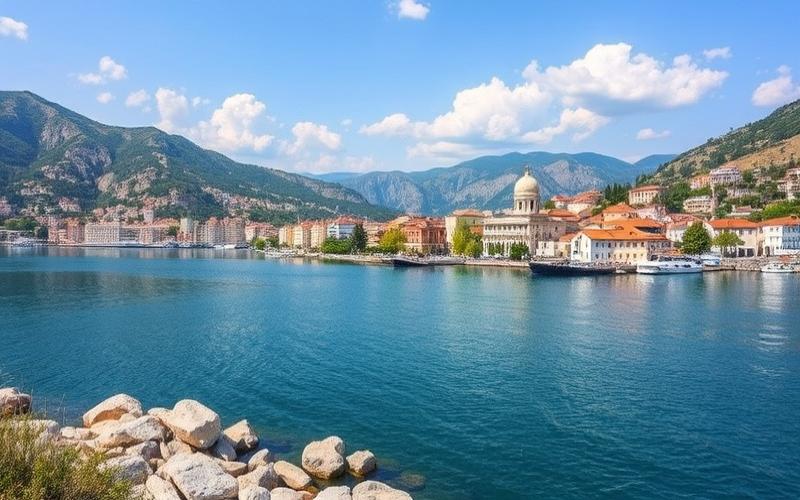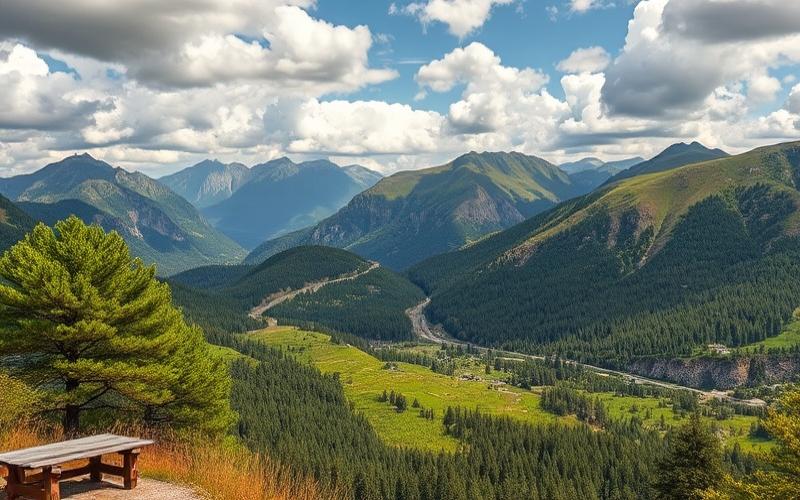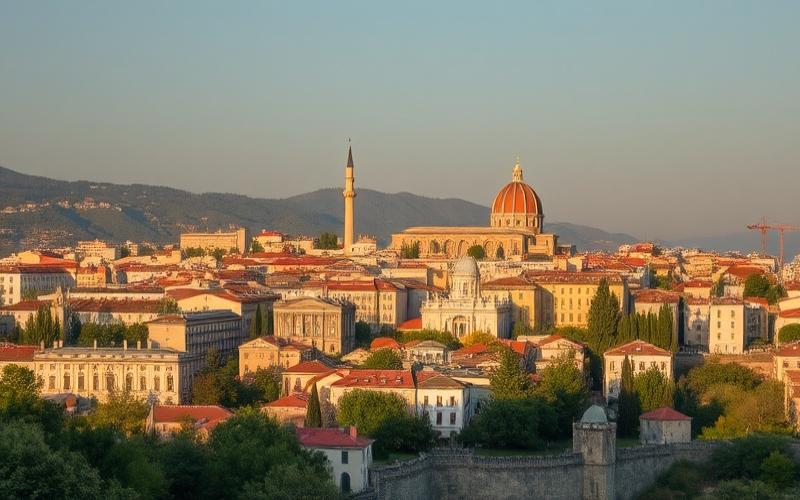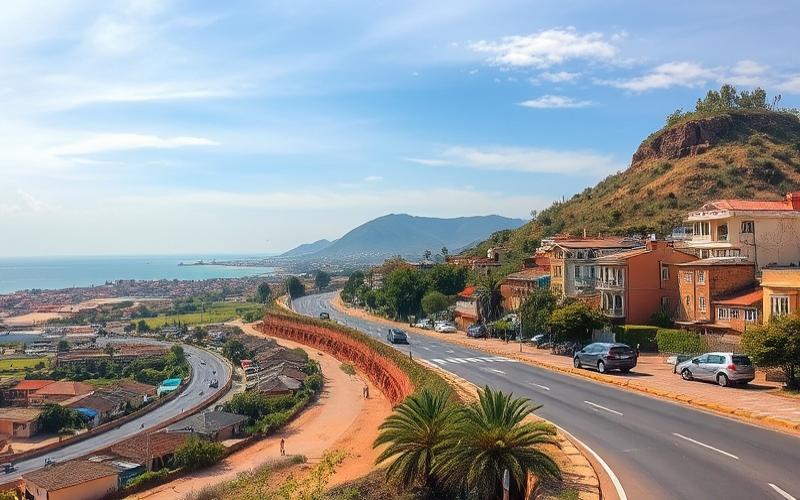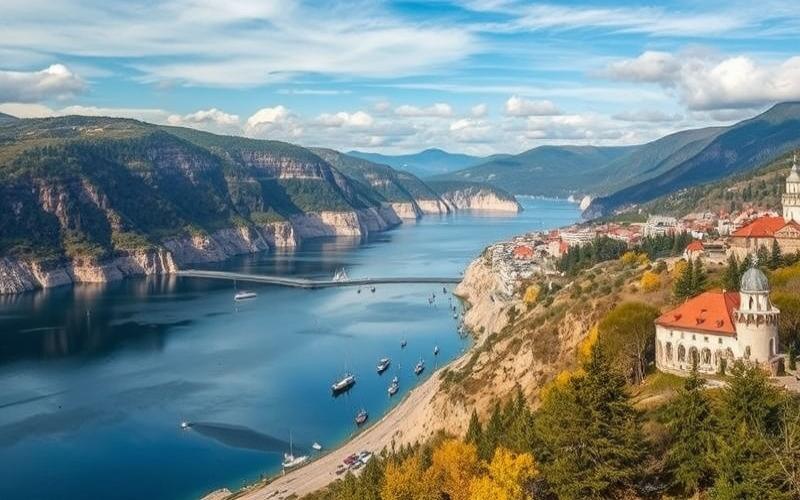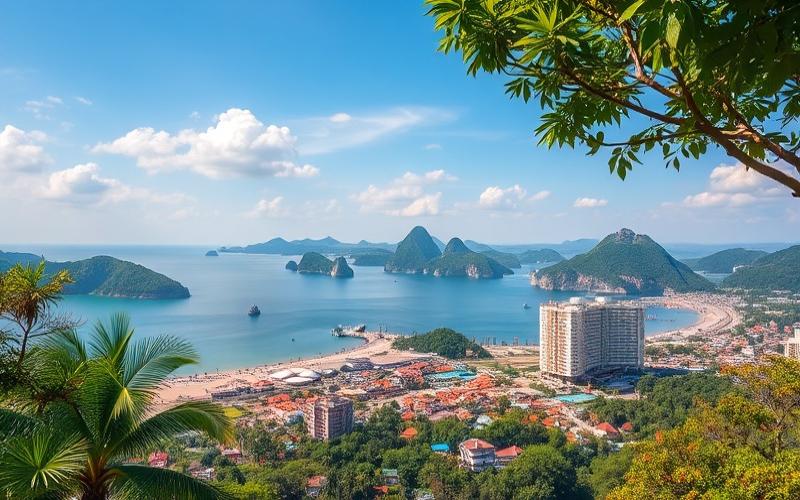
 Published on and written by Cyril Jarnias
Published on and written by Cyril Jarnias
Investing in a hotel in North Macedonia offers an exceptional opportunity to establish a presence in a rapidly expanding tourism market. Renowned for its breathtaking landscapes and cultural richness, this Southeastern European country attracts an increasing number of visitors each year.
However, before taking the leap, it’s crucial to consider a series of essential steps and checks to ensure the success of your acquisition. In this article, we provide a comprehensive checklist to guide you through the key stages, from understanding local regulations to evaluating profitability potential.
Embark on this adventure with a discerning eye and prepare your purchase project with complete peace of mind.
Overview of the Hotel Market in North Macedonia
Current Trends in the North Macedonian Hotel Market:
- The hotel sector shows continuous growth, supported by a steady increase in foreign visitors, particularly between 1997 and 2008 when hotel and restaurant revenues grew by 4.64% annually. In 2011, the increase in international arrivals reached +14.6%.
- Main tourists come from neighboring countries (Greece, Serbia, Albania), but also from Western Europe and the United States.
- The country is investing in modernizing its tourism infrastructure: renovation of the two international airports (Skopje and Ohrid) and major urban redevelopments are boosting tourism growth.
Key Hotel Investment Data:
| Dominant Segment | Estimated Share of Investments |
|---|---|
| 3 & 4 Star Hotels | Approximately 71% |
The market remains largely dominated by mid-range establishments (3 and 4 stars), which account for the majority of new investments.
Most Attractive Geographic Areas for Hotel Purchases:
- Skopje, the political and economic capital
- Ohrid, a major tourist city thanks to its UNESCO-listed lake
- Recently renovated city centers or areas near major natural attractions
Popular Types of Accommodation:
- Traditional hotels (especially mid-range)
- Small family hotels or guesthouses in rural/tourist regions
- Gradual rise of modern structures meeting international standards
“North Macedonia has been undertaking improvement operations for several years…the most notable example being Skopje 2014…creation of museums and hotels.”
Economic and Tourism Factors Influencing Hotel Demand:
List of Drivers:
- Relative economic stability with controlled inflation around 2.6% in early 2025
- Visible improvement in the international air network
- Attractive cultural and natural wealth for diverse tourism: relaxation, culture, sports/nature
List of Challenges:
- Dependence on regional clientele
- Heightened sensitivity to European/global macroeconomic fluctuations
Opportunities for Hotel Investors:
- Unexploited potential in certain high-end or thematic segments (wellness/spa)
- Leverage effect linked to rapid improvement of national infrastructure
- Currently low level but dynamic growth expected in the medium term
Potential Challenges for Investors:
- Market still relatively immature compared to major European destinations
- Risks related to regional or international volatility that could affect tourist flows
- Sometimes significant need for complementary investments when purchasing in less developed areas
Good to Know:
In North Macedonia, the hotel market is currently experiencing slight growth, with average occupancy rates around 60-70%. Boutique hotels and eco-friendly accommodations are gaining popularity, while major chains are less present. Recent investments are concentrated in the tourist areas of Skopje and Ohrid, where demand is driven by European visitors and the Macedonian diaspora. Interesting opportunities are emerging, particularly in eco-tourism and cultural tourism, although investors must consider increasing competition and infrastructure improvement needs. Economic factors such as relatively low operational costs and affordable labor are assets, but the market remains vulnerable to seasonal tourism fluctuations and dependence on air transport.
Guide to Acquiring a Hotel in North Macedonia
To acquire a hotel in North Macedonia, several key steps must be followed:
Property Search and Evaluation
- Property Search: Use local real estate agents and online platforms to identify hotels available for purchase. Cities like Skopje and Ohrid are popular for their tourist attractions.
- Location Evaluation: Consider the location, accessibility, and condition of the property. Areas near lakes or historical sites can be particularly attractive.
Legal and Administrative Procedures
- Creating a Local Company: Foreigners must create a company to purchase real estate. This facilitates property acquisition and management.
- Notarized Contracts: All sales contracts must be written and notarized by a public notary.
- Cadastre Registration: After paying transfer duties, the contract must be registered with the real estate cadastre to finalize the property transfer.
Adapting Offers to Reach Tourists
- Understanding the Local Market: Understand tourist preferences in the region, particularly regarding comfort, services, and activities.
- Service Diversification: Offer varied services like local excursions, cultural activities, and traditional dining options.
- Targeted Marketing: Use online marketing strategies to promote your hotel to potential tourists.
Regional Differences and Seasonality
- Regional Differences: Mountainous regions like the Shar Mountains offer opportunities for adventure tourism, while coastal areas of Lake Ohrid are ideal for summer vacations.
- Impact of Seasonality: The hotel sector is heavily influenced by seasonality. Summer months are the busiest, while winter months can be quieter.
Obtaining Licenses and Recruiting Staff
- Operating Licenses: Obtain necessary licenses for hotel operation, including health and safety permits.
- Recruiting Local Staff: Recruit local staff to better understand client needs and offer personalized service.
Improving Customer Experience
- Continuous Training: Provide ongoing staff training to improve service quality.
- Customer Feedback: Encourage customer feedback to identify areas for improvement.
Cost and Benefit Comparison Table
| Aspect | Costs | Benefits |
|---|---|---|
| Acquisition | Transaction fees, property taxes | Potential to increase property value |
| Staff | Salaries, training | Personalized service, better customer experience |
| Marketing | Advertising campaigns, social media management | Increased visibility, attract more customers |
Tips for Success
- Know the Market: Study local trends and tourist preferences.
- Innovation: Introduce innovative services to stand out from the competition.
- Local Support: Collaborate with local businesses to offer authentic experiences.
Good to Know:
To acquire a hotel in North Macedonia, it’s essential to first identify available properties through local agencies and online platforms, then thoroughly evaluate the locations considering their geographical position, particularly the differences between regions like Skopje and Ohrid. Administrative procedures include company registration and obtaining specific hotel industry operating licenses. It’s also advisable to adapt your tourist offerings according to seasonality, as the region experiences a particularly marked summer influx in Ohrid due to lake activities. Recruiting local staff can offer advantages in terms of costs and authenticity, and to stand out from the competition, it’s recommended to focus on improving customer experience through personalized services and cultural circuit recommendations.
Key Steps of Due Diligence in the Hotel Industry
Due diligence in the hotel sector corresponds to an in-depth investigation process aimed at analyzing all financial, legal, technical, and commercial aspects before acquiring a hotel. It allows the buyer to make an informed decision, minimize risks, and avoid any post-transaction surprises. In hospitality, due diligence is essential because it encompasses not only verification of physical assets (buildings, equipment) but also the operational and commercial viability of the establishment.
Key Due Diligence Steps When Purchasing a Hotel in North Macedonia:
1. Financial Analysis
- Detailed examination of financial statements over several years to verify consistency of reported results.
- Analysis of cash flows to assess real profitability and identify any potential risks related to revenues or expenses.
- Precise evaluation of assets (buildings, furniture, equipment) as well as any potential liabilities (supplier debts, tax disputes).
- Verification that all tax obligations are met to avoid any future risk related to tax adjustments.
2. Legal Verifications
- Rigorous check of the property title to ensure there are no disputes or easements affecting the property.
- Exhaustive examination of staff-related contracts: compliance with Macedonian local labor law, specific clauses, and any ongoing disputes.
- Careful analysis of commercial agreements such as franchise or hotel management contracts; evaluation of contractual obligations transferred during the purchase.
- Complete review of the hotel’s compliance with all local regulations (administrative authorizations, health and safety standards).
3. Physical Inspection
- Thorough visit to assess the general condition of the building: load-bearing structure, roofing, electrical/plumbing/HVAC installations.
- Precise condition of rooms, common areas (restaurants/bar), event spaces, and other ancillary infrastructure such as pools or spas.
- Complete inventory and functional check of professional furniture and all technical equipment necessary for proper hotel operation.
4. Commercial & Market Verifications
| Element Evaluated | Specific Objective |
|---|---|
| Local competition analysis | Identify price/service positioning relative to other similar hotels |
| Historical occupancy rate study | Understand tourism seasonality specific to North Macedonia |
| Target customer evaluation | Determine adequacy of current offerings with national/international tourist demand |
| Consideration of local economic context | Anticipate possible evolution based on regional economic/tourism dynamism |
In the specific Macedonian context, it’s necessary to integrate:
- Regional tourism specifics like UNESCO-listed Ohrid attracting growing international clientele,
- Moderate but steady growth of the tourism sector,
- Importance placed by certain foreign clientele on international standards,
- Potential public aid intended for hotel development in certain geographical areas.
“Due diligence should allow the acquirer to immerse themselves in the hotel’s activity…and analyze the project’s long-term viability”
Good to Know:
Due diligence, crucial in purchasing a hotel in North Macedonia, involves meticulous examination of several key elements. This begins with an in-depth financial analysis, where you review financial statements, cash flows, and evaluate existing assets and liabilities. The legal aspect requires verification of property titles, examination of employment contracts and franchise or management agreements, as well as compliance with local regulations. A physical inspection of the hotel is essential to assess the condition of infrastructure, facilities, and equipment, thus ensuring no unexpected costs are hidden. Finally, studying local competition and the hotel’s positioning, while considering the country’s economic and tourism particularities, ensures the investment is strategically viable. North Macedonia, with its emerging tourism potential and captivating landscapes, offers a unique opportunity but requires expert evaluation to fully leverage this wealth.
Tourism Statistics and Trends in North Macedonia
Number of Tourists and Recent Developments
- Annual Tourist Arrivals: In 2024, North Macedonia reached a record attendance with approximately 2.3 million arrivals in August, marking the major seasonal peak. The monthly average for the 2003-2024 period is about 628,000 arrivals. Summer months remain the most attractive, particularly August which concentrates the majority of tourist flows.
- Recent Growth: Between January and April 2025, the total number of tourists increased by 13.4% compared to the same period the previous year. Over the first four months of the year, an overall increase of 20% in arrivals and overnight stays is observed, confirming a very positive post-pandemic dynamic.
| Year | Arrivals (in hundreds) | Evolution Rate (%) |
| April 2020 | 7 | – |
| August 2024 | 2326 | + |
| Jan-Apr 2025 vs N-1 | +13.4% | +20% |
Main Geographic Origins
- Visitors come mainly from neighboring countries: Greece, Serbia, and Albania.
- A growing share also comes from Western Europe and the United States.
Emerging Tourism Sector Trends
Types of Tourism in Growth
- Eco-tourism, based on natural riches (Ohrid and Prespa lakes), is developing rapidly due to increased demand for green activities.
- Cultural tourism, driven by historical heritage (Byzantine monasteries, ancient sites) attracts varied international audiences.
Financial Data and Sector Projections
North Macedonia’s Travel & Tourism market is projected to reach a revenue of US$70.22m by 2025, with an expected annual growth rate of 7.47% (CAGR) between 2025-2029.
This dynamism translates into:
- Continuous renovation of hotel and urban infrastructure,
- Increased investment in extension or modernization of existing establishments (example: major renovations in Skopje/Ohrid).
Impact on Local Hotel Market & Perspectives for Investors
- Significant increase in occupancy rates during high season
- Sustained increase in hotel revenue (+4.64%/year between 1997-2008; amplified trend since)
- Growing demand for alternative accommodations (eco-tourism, rural lodgings)
For Investors:
Profitability should continue to progress thanks to maintained upward momentum over several consecutive years.
Projections anticipate:
- Increased need for new capacity during high season
- Opportunities in sustainable development (green accommodations) or thematic offerings (cultural boutique hotels)
- Attractive returns driven by constant improvement of the infrastructure context
The North Macedonian tourism sector is currently experiencing its fastest growth phase in two decades—with emphasis on ecology and heritage—which opens high potential for any investor wishing to anticipate the next wave of profitable hotel ventures.
Good to Know:
In 2022, North Macedonia welcomed approximately 800,000 tourists, a figure up 15% from the previous year. The majority of visitors come from neighboring Balkan countries, followed by travelers from Western Europe. The summer season remains the main peak of attendance, although growing interest in cultural and ecological tourism is now attracting visitors year-round. These emerging trends suggest a diversification of the tourism market, prompting a rethinking of hotel infrastructure to meet this varied demand. Revenues generated by the sector, constantly rising, make hotel purchase a potentially profitable option, especially with improved transport connections and state investment incentives. Projections for 2024 indicate continued growth, supported by government initiatives and increased promotion of cultural and natural sites.
Disclaimer: The information provided on this website is for informational purposes only and does not constitute financial, legal, or professional advice. We encourage you to consult qualified experts before making any investment, real estate, or expatriation decisions. Although we strive to maintain up-to-date and accurate information, we do not guarantee the completeness, accuracy, or timeliness of the proposed content. As investment and expatriation involve risks, we disclaim any liability for potential losses or damages arising from the use of this site. Your use of this site confirms your acceptance of these terms and your understanding of the associated risks.

